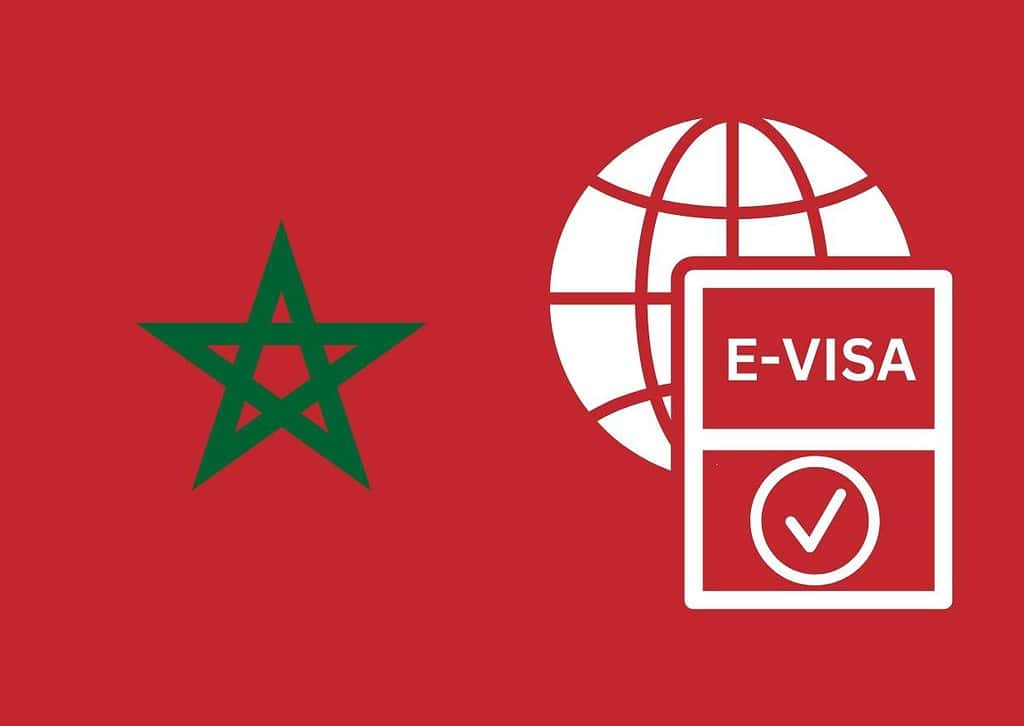Morocco has a structured visa policy that varies depending on the nationality of the visitor and the purpose of their visit. While many nationalities are eligible for visa-free entry, others need to apply for an electronic visa (e-Visa) or Electronic Travel Authorization (ETA). Citizens from certain countries that are not eligible for these options must obtain a visa in advance from a Moroccan diplomatic mission.
Who Needs a Visa to Enter Morocco?
- Visa-Exempt Countries: Citizens of over 70 countries and territories can enter Morocco visa-free for stays of up to 90 days for tourism or business purposes.
- Electronic Visa (e-Visa): Citizens from a select group of countries can apply for an e-Visa online for short stays, offering a more convenient option than obtaining a visa from Moroccan embassies.
- Electronic Travel Authorization (ETA): Some nationalities are eligible for an ETA, which must be obtained prior to arrival but does not require a traditional visa application.
- Visa in Advance: Nationals from other countries not covered by the e-Visa or visa-free policy must apply for a visa at a Moroccan embassy or consulate before traveling.
Visa-Free Entry
Visitors from the following countries can enter Morocco without a visa for up to 90 days:
- European Union (all member states)
- United States
- Canada
- United Kingdom (only for British citizens, British Nationals (Overseas), and British subjects with the right of abode)
- Australia
- Japan
- Brazil
- Turkey
- Russia
- UAE
- Singapore
Additional Notes:
- Dominican Republic nationals can stay visa-free for 60 days.
- Nationals from Hong Kong, Macao, and the Maldives can stay for 30 days visa-free.
Electronic Visa (e-Visa)

As of July 10, 2022, the country introduced the Morocco e-Visa system to simplify the visa process for certain foreign nationals. Travelers can apply for an e-Visa online without needing to visit a consulate.
Eligible for e-Visa:
- India
- Israel
- Jordan
- Thailand
- Benin
- Guatemala
Additionally, citizens of countries that hold a valid visa or residence permit from the following countries are also eligible to apply for an e-Visa:
- Schengen Area
- United States
- Canada
- Australia
- United Kingdom
- Ireland
- New Zealand
- United Arab Emirates
Electronic Travel Authorization (ETA)
Nationals of the following countries can enter Morocco after obtaining an Electronic Travel Authorization (ETA), which acts as a simplified visa waiver process:
- Republic of the Congo
- Guinea
- Mali
Visa on Arrival and Special Zones
Morocco does not offer a visa on arrival, except for certain free trade zones such as Kish Island in Iran. Visitors must apply for a visa or e-Visa in advance if they are not from a visa-exempt country.
Visa Requirements for Diplomatic and Service Passport Holders
Holders of diplomatic, official, or service passports from certain countries are also exempt from visa requirements, typically for stays of up to 90 days. This includes nationals from countries such as:
- Argentina
- Brazil
- China
- Russia
- Turkey
- Indonesia
For some countries, the exemption applies only to diplomatic passports, while for others, it applies to diplomatic, official, and service passports.
Future Visa Policy Changes
Morocco has signed visa exemption agreements with several countries, though these agreements are not yet in force. These agreements include:
- Benin (January 2024) for ordinary passports
- Kazakhstan (September 2024) for ordinary passports
- Madagascar (June 2024) for diplomatic passports
Visa Application Process
For travelers who are required to apply for a visa, the process generally involves the following steps:
- Submit an application to a Moroccan embassy or consulate.
- Provide necessary documents, including a valid passport, passport-sized photos, proof of accommodation, and a return ticket.
- Pay the visa fee, which varies depending on the nationality and type of visa.
- Once approved, travelers receive a visa stamp or e-Visa confirmation, which allows entry into Morocco.
Entry Restrictions
Certain nationalities face restrictions when applying for visas. Citizens of the following countries are ineligible for both regular and conditional e-Visas:
- Iran
- Kosovo
- Palestine
- Syria
- Taiwan
- Tuvalu
These travelers must apply for a visa in advance and go through additional scrutiny during the application process.
Important Passport Requirements
All travelers must ensure their passport is valid for at least 6 months beyond the duration of their stay in Morocco.
Frequently Asked Questions (FAQs)
- Do I need a visa to visit Morocco? Citizens from over 70 countries, including the EU, US, Canada, Australia, and Japan, can enter Morocco visa-free for up to 90 days.
- Can I apply for an e-Visa for Morocco? Yes, citizens from countries like India, Israel, Jordan, and Thailand can apply for an e-Visa. Additionally, those holding a valid visa or residence permit from countries like the Schengen Area or the US are also eligible for an e-Visa.
- How long can I stay in Morocco with a visa-free entry? Most visitors from visa-exempt countries can stay for up to 90 days. However, some countries like the Dominican Republic and Maldives have shorter stays of 30-60 days.
- Do I need an ETA to enter Morocco? Citizens of Republic of the Congo, Guinea, and Mali need an Electronic Travel Authorization (ETA) to enter Morocco.
- Are there any entry restrictions for certain nationalities? Yes, nationals of Iran, Kosovo, Syria, and Taiwan are ineligible for the e-Visa and must apply for a visa in advance through a Moroccan embassy or consulate.
- Can my visa be extended while in Morocco? Yes, visitors in Morocco can apply to extend their visa beyond the initial period of entry by applying through local immigration authorities.
